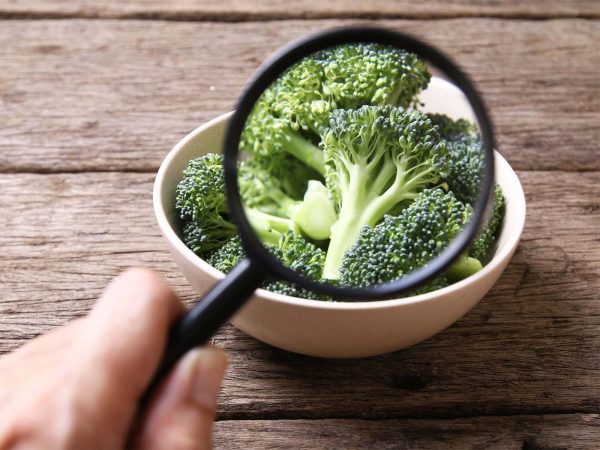Organic Foods: Are they a Waste of Money?
The fact that you’re reading this suggests that you care about protecting your health and that of your family. It says that you care about the foods you consume and the ingredients within them. In fact, you probably believe that organic meat and produce are healthier and safer than those that are raised and grown conventionally.
But as sensible as these ideas are, they are actually a threat to Big Agriculture. Certain vested interests want you to believe that there is no benefit to organic foods. They want you to believe that conventional agriculture products and GMO foods pose no risk to your health. And these corporate interests will go to nearly any lengths to convince you and millions of others that you are wasting your time and money to eat this way.
Organic Foods Provide No Health Benefit? Hogwash!
The latest round of propaganda came by way of a Stanford study. It was published in the Annals of Internal Medicine and released at the beginning of September. The headline that the Stanford researchers used in their press release pretty much sums it up: “Little evidence of health benefits from organic foods.”
Not surprisingly, the corporate media (which receives billions of dollars in advertising revenue from the food giants) lapped it up. They obediently mirrored the study’s negative spin. Of course, they didn’t bother to do a critical analysis of the methodology. And in most cases they didn’t balance their reporting by presenting what critics of the study had to say.
The media dutifully played their role in casting doubt on the value of an organic diet. And they used their position of prominence to manipulate the public perception. If you’ve picked up a newspaper this month or opened your web browser, you’ve probably seen some of these headlines.
- New York Times:”Stanford Scientists Cast Doubts on Advantages of Organic Meat and Produce”
- Huffington Post:”Organic Food is Not Healthier than Conventional Produce”
- Fox News:”Organic Food May not be Worth the Money”
- Washington Post: “Organic, Conventional Foods Similar in Nutrition and Safety, Study Finds”
When the entire news cycle is dominated by headlines about one study, your radar should go off. This is especially true when the media spouts the same line across the board. It almost always indicates that some serious lobbying interests are at work behind the scenes.
And that’s exactly the case here. The fact that this effort was coordinated across academia, the mass media and big business reveals an insidious effort to manipulate public opinion. But before we get to the special interests involved… let’s look at what the study actually found. It wasn’t nearly so negative toward organic agriculture as the headlines would have you believe.
Study Shows Organic Foods ARE Healthier!
In fact, it showed the opposite of what was reported in the media. The study clearly showed that organic meat and produce is MUCH healthier. And it showed that there can be serious risks to consuming non-organic foods.
The Stanford study included a meta-analysis of 223 studies that tested nutrient and contaminant levels in organic and non-organic foods. They also looked at the results of 17 studies on humans. Here’s part of what the Stanford researchers discovered:
- 38 percent of the conventional produce tested was contaminated with pesticide residues
- 93 percent of the organic produce tested was free of pesticide residues
- The organic produce showed “significantly higher” levels of phosphorous and phenols.These are key compounds for bone health and cellular repair.
- Organic chicken contains higher levels of heart-healthy vaccenic acid
- There is a 33 percent higher risk of ingesting antibiotic-resistant superbugs when you eat conventional chicken or pork
- Conventional meats are more likely to contain at least three different pathogenic superbugs
- Organic milk contains “significantly higher levels of omega-3 fatty acids.”
- Children consuming organic diets had “significantly lower urinary pesticide levels.”
The Stanford researchers summarized some of these findings when they stated that, “Consumption of organic foods may reduce exposure to pesticide residues and antibiotic-resistant bacteria.”
These sound like big benefits to me. In fact, I would consider this significant evidence that organic foods are MUCH healthier and safer than conventional. Not to mention that by choosing organic meats, you don’t have to char your food to a crisp to ensure that you’ve killed the potentially deadly germs.
But the researchers decided that none of these things mattered. Instead, they focused on the fact that many of these studies showed that organic foods have the same nutrition levels as non-organics. Therefore, the researchers concluded that organics offer no benefit over conventional foods. And that’s the spin the media reported.
Cherry-Picking Studies Leads to False Conclusions
We’ve already shown that this conclusion is false and misleading based on the actual results of the study. But the study also intentionally ignored a wealth of research favorable to organics. By performing a meta-analysis, the researchers were free to choose which studies they would examine. And they were free to exclude those that did not support their agenda.
Charles Benbrook, PhD, is one expert who found the Stanford study to be clearly misleading. Benbrook is a professor of agriculture at Washington State University. He is also the former chief scientist at The Organic Center. He notes that numerous well-designed studies show that organic crops have higher concentrations of antioxidants and vitamins than conventional.
For example:
- A 2007 study out of Newcastle University in the United Kingdom reported that organic produce boasted up to 40 percent higher levels of vitamin C, zinc and iron than conventional.
- A study published in the Journal of Agricultural and Food Chemistry found that organic berries contained 58 percent more polyphenols and up to 52 percent higher levels of vitamin C.
- The Human Nutrition Research Center also found that organic foods are higher in vitamin C, antioxidants and polyphenols up to 80% of the time.
- Researchers at the University of California-Davis grew kiwifruits with either organic or conventional methods. The kiwis were grown on the same farm in the same type of soil. They were harvested at the same stage of maturity. And yet the organic crop had higher levels of minerals, vitamin C and phenols.
Research has also consistently shown that naturally-raised, organic beef has much higher levels of omega-3 fatty acids and conjugated linoleic acid (CLA) and lower levels of omega-6 fatty acids.
It is certainly important to most consumers that organic meat and produce is more nutritious. But that’s not why most of us choose to eat organic. We eat organic to avoid all the “extras.” We choose organic to avoid pesticides, herbicides and genetically modified organisms (GMO).
The Stanford study chose to completely ignore this benefit of organic agriculture. They ignore the fact that pesticide exposure has been linked to cancer, metabolic disorders, pre-term births and reproductive issues, lower IQs in children and a host of other health concerns.
The researchers dismissed the concerns about pesticides by claiming that the levels were within legal tolerances. There was no discussion as to whether those tolerances are actually safe. Nor was there an acknowledgment that exposure to pesticides is cumulative. The danger is not found in just one meal. It comes from the slow poisoning caused by years of consumption.
Of course, the study also didn’t mention that organic farming is healthier for the environment and more humane toward the animals being raised for meat. It simply concluded that because the nutritional value was similar (in the cherry-picked studies) that there is no benefit to choosing organic.
So, why would these researchers ignore the effects of pesticides in conventional produce? And why would they go out of their way to “debunk” organics? To get to the bottom of these questions it helps to follow the trail of money.
Popularity of Organics vs. Profits
The growing popularity of organic whole foods and the backlash against GMOs is a direct threat to the profits of a number of large corporations. As it turns out, at least one of these corporations is in direct partnership with Stanford. In fact, the Stanford institute that put out this research clearly states on their website that they “rely on support from foundations and corporations.”
Is it really a stretch to think that these corporations and foundations are looking to get a “return” on their investment?
Cargill is one of the companies that has partnered with Stanford. Cargill is the world’s largest agricultural business. They are heavily invested in conventional agriculture and technology related to genetic modification. They have also contributed at least $5 million toward the creation of the Center on Food Security and the Environment at Stanford. The Bill and Melinda Gates Foundation is another contributor to the institute at Stanford responsible for this study. The Gates Foundation is a large investor in Monsanto – the world’s leading purveyor of GMOs.
And that’s not all. One of the co-authors of the study is Dr. Ingram Olkin. You’ve probably heard the old saying, “There are lies, damned lies, and statistics.” Well, Dr. Olkin is an expert at using statistical algorithms to contort facts. His work was at the heart of Big Tobacco’s efforts in the 1970s to “prove” that cigarettes were perfectly safe. It is not much of a stretch to believe that he might offer the same kind of support to the anti-organic, pro-GMO agenda of Big Agriculture.
So, what should you do about this information?
First of all, you should be wary of much of the “research” you see in the news – especially, when the entire news media covers the same story with the same angle. Not all research is biased and misleading, of course. But you should be aware that sometimes it can be. And just because it comes from a “reputable” university and is trumpeted by a “reputable” news source, does not mean that it is accurate or worth your attention.
For example, Harry Wallop of the London Telegraph ended his anti-organic coverage of the Stanford study with the following sentence: “Tomorrow, the baby is going to get an extra dollop of pesticide-sprayed carrots.” This clueless reporter might be willing to slowly poison his own family, but that doesn’t mean that you should.
If you’re already eating organic meat and produce, you are on the right path. You are doing the right thing for your body and for the environment. Continue to boycott Big Agriculture by avoiding processed foods, by growing some of your own foods if possible, and by supporting local farmers and organic food companies.




Leave a Reply